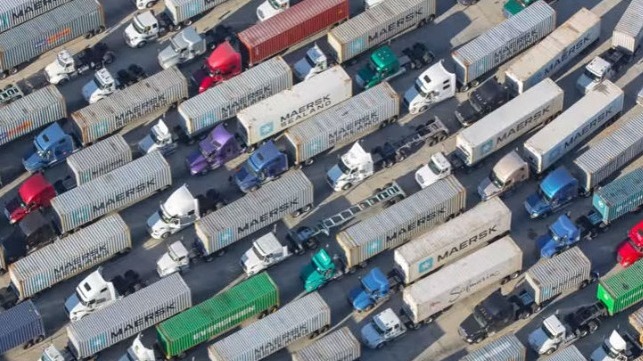FMC Investigates Carriers' Strong-Arm Tactics on Container Fees

Amidst a surge of import volume and unprecedented congestion at the nation's biggest container seaports, the Federal Maritime Commission is expanding its fact-finding investigation into logistical challenges and pursuing reports of potential noncompliance.
The inquiry is an extension of the FMC's Fact Finding 29 investigation, which was intended to identify collaborative operational solutions to the challenges affecting America's seaports due to the COVID-19 pandemic. It was oriented towards finding practical commerical measures that could make port logistics run more smoothly. In the course of that investigation, FMC received reports of potential non-compliance with regard to policies on the handling of empty containers. The statute in question requires NVOCCs, terminal operators and ocean carriers to maintain "just and reasonable" rules for handling boxes - including demurrage and detention charges.
"Stakeholder discussions revealed several problem areas in and around major ports, including the Ports of Los Angeles, Long Beach, and New York/New Jersey," said FMC Chairman Michael A. Khouri. "The problems identified include return of empty containers, availability of empty containers for U.S. export cargos, and demurrage and detention charges in and around the marine terminals. I believe all Commissioners have heard from constituents concerning these problem issues as well as related subjects."

that matters most
Get the latest maritime news delivered to your inbox daily.
After these stakeholder complaints, the Commission says that it now has a responsibility to investigate. It suggested that the potentially noncompliant practices are having "an unprecedented negative impact on congestion and amplifying bottlenecks" at the Port of New York and New Jersey and the Long Beach / LA port complex.
The stakeholder complaints include allegations that vessel operators are making dray truck companies pay detention fees in situations in which it may not be permissible - including commercial situations in which the trucking company is not responsible for payment. "Further, there have been allegations that the [ocean carrier] has told the dray truck operator or the [NVOCC] that if they do not pay, they will be put on a 'blacklist' and not receive any further business," said Khouri.
